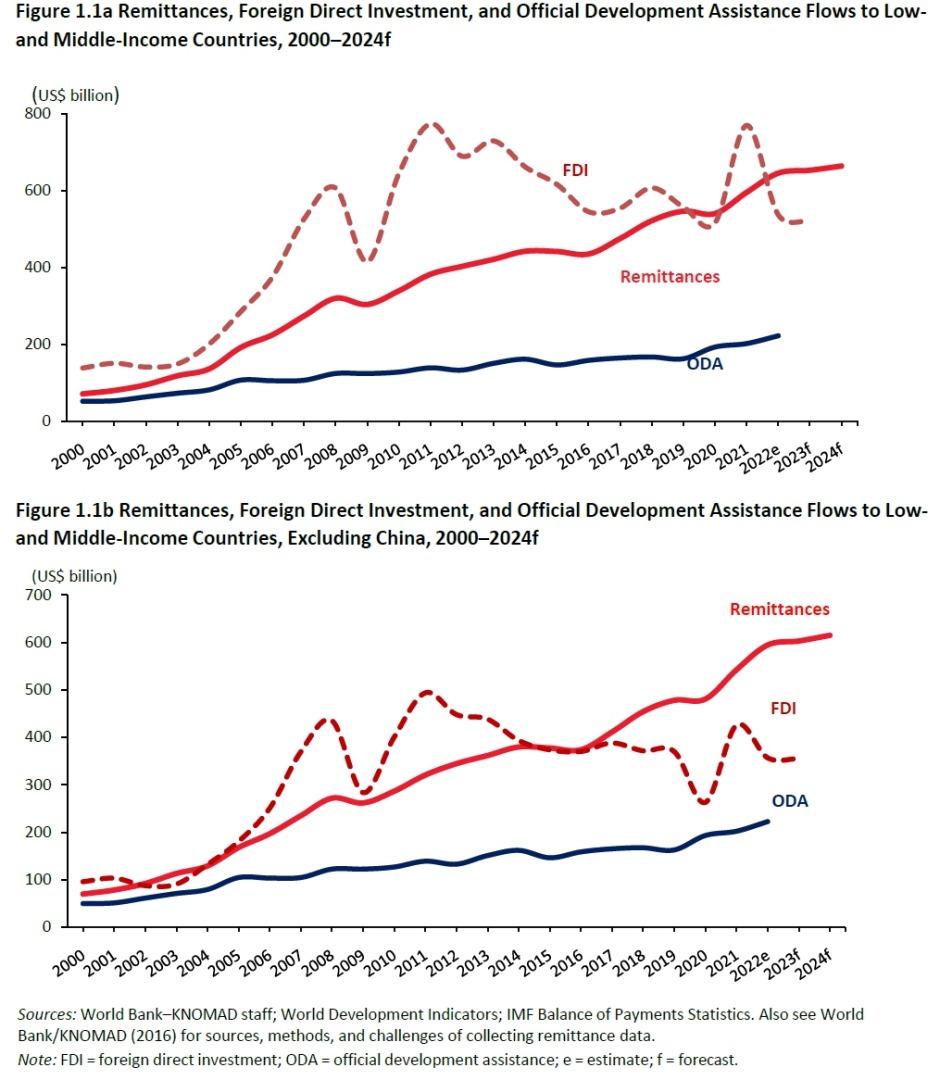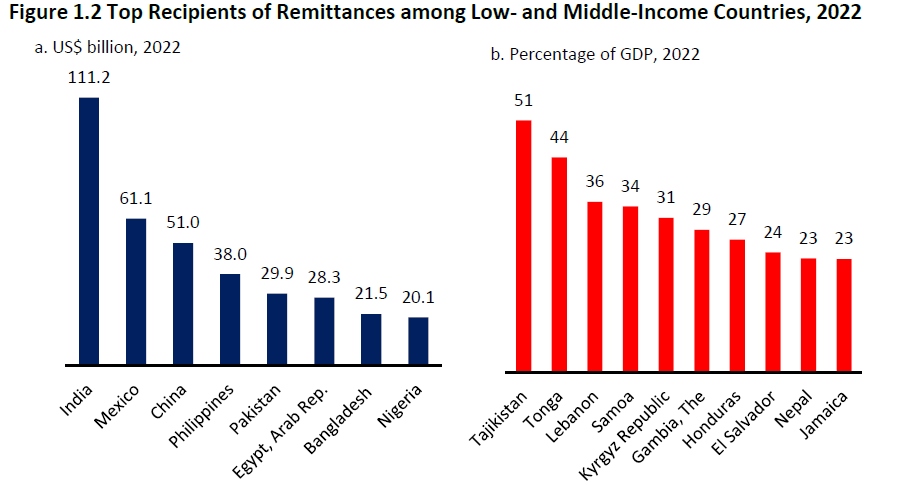Comments
- No comments found

"Remittances" involve earning money abroad and sending some back to one's home country.
In effect, some countries both exports goods and services, and receive payment from buyers in other countries, but also export worker, and receive payment from other countries. The World Bank has a Migration and Remittances Team, and it provides an update on the numbers in “Remittances Remain Resilient but Are Slowing” (Migration and Development Brief 38, June 2023).
Here’s the overall pattern. In 2000, the level of remittances was quite similar to “official development assistance” (ODA), while both of those were substantially lower than foreign direct investment (FDI). Now, remittances are roughly triple official development assistance. And if you take foreign direct investment going to China out of the picture, as shown in the bottom panel, remittances are roughly double the level of FDI going to all other low- and middle-income countries.

In short, remittances are a huge part of the capital flows between countries. However, they often don’t make the news. Development assistance from nation to nation or a big overseas investment by a US company can make headlines. But payments of remittances, often within families, are individually quite small–it’s just that they add up to big stuff.
The report provides lots of detail about remittances in regions and countries. Here’s one more chart. The left-hand panel shows remittances received by the country. The right-hand panel shows remittances as a share of GDP, which is more than one-fifth of GDP for the countries listed there.

These flows also help to explain the interest, in many low- and middle-income countries, in finding ways to transfer money across international borders at lower cost, even if it involves using cryptocurrencies or other new financial technologies.
I’ll leave it for another day to write about whether remittances are “good” or “bad” (although personally, I lean heavily to the “good” side). On one hand, there are concerns that countries sending migrants may suffer from “brain drain,” as those who are more educated or highly motivated may go other places. On the other hand, when people of your country are earning and sending home tens of billions of dollars, or in some cases more than one-fifth of GDP, that’s not obviously a bad thing! Moreover, the skills learned by migrants and the economic connections they make can often be of considerable use to those who remained in the country of origin.
Timothy Taylor is an American economist. He is managing editor of the Journal of Economic Perspectives, a quarterly academic journal produced at Macalester College and published by the American Economic Association. Taylor received his Bachelor of Arts degree from Haverford College and a master's degree in economics from Stanford University. At Stanford, he was winner of the award for excellent teaching in a large class (more than 30 students) given by the Associated Students of Stanford University. At Minnesota, he was named a Distinguished Lecturer by the Department of Economics and voted Teacher of the Year by the master's degree students at the Hubert H. Humphrey Institute of Public Affairs. Taylor has been a guest speaker for groups of teachers of high school economics, visiting diplomats from eastern Europe, talk-radio shows, and community groups. From 1989 to 1997, Professor Taylor wrote an economics opinion column for the San Jose Mercury-News. He has published multiple lectures on economics through The Teaching Company. With Rudolph Penner and Isabel Sawhill, he is co-author of Updating America's Social Contract (2000), whose first chapter provided an early radical centrist perspective, "An Agenda for the Radical Middle". Taylor is also the author of The Instant Economist: Everything You Need to Know About How the Economy Works, published by the Penguin Group in 2012. The fourth edition of Taylor's Principles of Economics textbook was published by Textbook Media in 2017.
Leave your comments
Post comment as a guest